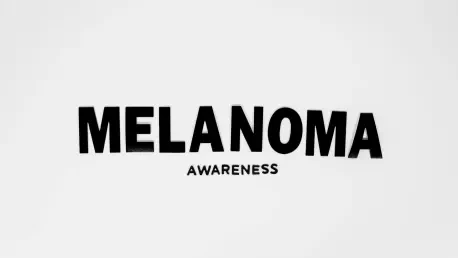The rapid evolution of personalized cancer vaccines promises a transformative era in oncology, as evidenced by the latest research on NeoVaxMI conducted by the Dana-Farber Cancer Institute. This study, focused on patients with untreated advanced or high-risk melanoma, explores advancements in the NeoVax platform, showcasing significant immune responses. The trial aimed to gauge the safety and potential immunogenic improvements in the new vaccine formulation and delivery method, and the findings reveal promising enhancements. The integration of additional immune-boosting compounds and modifications in the administration approach marks a pivotal step forward in personalized medicine, potentially reshaping cancer treatment paradigms.
Advancements in NeoVaxMI Vaccine
At the heart of this research lies a substantial update to the NeoVax personalized cancer vaccine. This update incorporates Montadine, an immune-boosting compound added alongside poly-ICLC, into the formulation. Poly-ICLC, present in earlier versions, enhances the body’s immune response, but the addition of Montadine marks a diverse strategy to further provoke a robust immune attack on cancer cells. Additionally, NeoVaxMI targets individual neoantigens, proteins that appear exclusively in a patient’s cancer cells, which are central to its personalized approach. Researchers also adjusted administration techniques to optimize the immune response, combining the improved vaccine with two complementary immunotherapies. This dual approach leverages advanced techniques to enhance efficacy, offering a beacon of hope in melanoma treatment by potentially improving immune profiling and T cell activation.
The trial involved nine patients who received the full vaccination protocol, and their immune responses were meticulously analyzed. T cells, a type of white blood cell critical for immune response, were isolated from blood samples after vaccination to evaluate their ability to recognize and respond to the neoantigens targeted by NeoVaxMI. Results showed that all nine patients exhibited robust T cell responses, with six demonstrating cytotoxic responses by CD-8+ T cells. This signifies a substantial enhancement compared to conventional treatments, particularly regarding the vaccine’s potential to elicit a powerful immune defense. This enhanced specificity and potency indicate that personalized vaccines such as NeoVaxMI could play a significant role in the future of oncology by harnessing the body’s natural defenses against cancer’s molecular fingerprints.
Strategic Immunotherapy Integration
The study further explores the strategic integration of systemic nivolumab and localized ipilimumab during vaccinations, showcasing a sophisticated approach to intensifying T cell activation. Nivolumab, a standard treatment in melanoma care, effectively reduces immune suppression, thereby complementing NeoVaxMI’s immune-enhancing capabilities. Meanwhile, ipilimumab, administered directly at the vaccination site, was expected to enhance T cell activation in response to the vaccine. The localized administration allows for a more concentrated and effective immunological reaction within the treated area, facilitating a strong immune response that might otherwise be challenging to achieve.
Advanced single-cell sequencing techniques employed in the study revealed increased immune cell prevalence, like macrophages, at critical reaction sites. This observation underscores the effectiveness of NeoVaxMI in priming the immune system, causing a cascade of activation that enhances the body’s ability to fight cancer. Distinct sets of T cell receptors, activated post-vaccination and distinct from those influenced by nivolumab alone, strengthen the argument for a diversified immune response. The data strongly suggest that combining nivolumab and ipilimumab with NeoVaxMI has the potential to create an optimized environment for T cell activity, pushing the boundaries of current immunotherapy effectiveness.
Promising Outcomes and Future Directions
The study’s results are not only promising due to this significant immune response but also because they demonstrate tumor infiltration by vaccine-induced T cells. Examination of tumor samples from selected patients confirmed that these T cells, elicited by NeoVaxMI, penetrated deep into the tumor microenvironment. This finding is a crucial indicator of the vaccine’s capacity to actively engage immune cells in attacking cancer from within, potentially leading to meaningful therapeutic outcomes. Such engagement suggests that the adaptations in vaccine formulation and administration can significantly influence the tumor-immune interface, driving more effective cancer control.
While the results are promising, the study’s scope is acknowledged to have limitations, notably its modest sample size. Introducing several new components simultaneously poses challenges in isolating each one’s specific impact on the overall outcomes. However, the trial did not identify any concerning safety issues, suggesting that NeoVaxMI is well-tolerated and ready for further examination in broader clinical settings. These initial findings provide a valuable framework for future research and underscore the exciting potential of NeoVaxMI as a step toward more personalized, effective cancer treatments.
A New Horizon in Cancer Immunotherapy
The rapid advancement of personalized cancer vaccines heralds a new era in oncology, as demonstrated by groundbreaking research on NeoVaxMI from the Dana-Farber Cancer Institute. This study focuses on patients with untreated advanced or high-risk melanoma, unveiling significant progress in the NeoVax platform that reveals major immune responses. The primary goal of this trial was to assess both the safety and the potential for improved immunogenicity offered by the new vaccine formulation and delivery method. Results indicate promising enhancements, notably through the incorporation of immune-boosting compounds and modifications in how the vaccine is administered. These changes signify a crucial step forward in the field of personalized medicine, potentially revolutionizing cancer treatment paradigms. By integrating cutting-edge innovations and refining traditional approaches, this research could reshape our understanding and approach to treating complex cancers, offering hope for more effective and tailored treatments in the fight against one of medicine’s most challenging adversaries.









